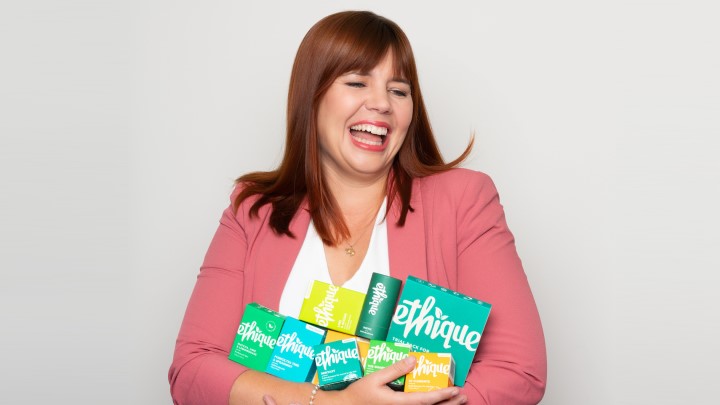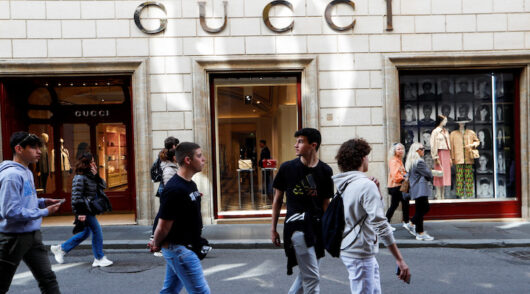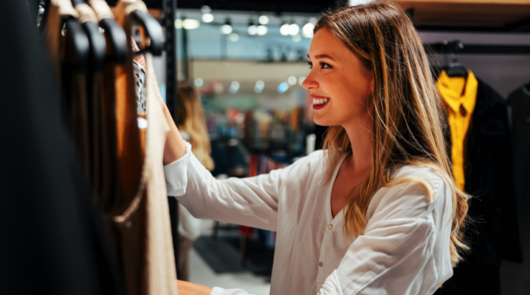From a shampoo bar made in a New Zealand kitchen in 2012 to an international, values-led business, Ethique has championed climate friendly values from the very beginning.
Here, we speak with founder Brianne West about the business’ growing expansion opportunities, the surge in ‘values-led’ brands, and what other brands get wrong about being green.
Inside Retail: What have the past few years been like for Ethique? How has the business evolved?
Brianne West: It’s been an interesting couple of years, but we’re largely on the same trajectory.
We’re experiencing a lot of growth offshore, the United States is our biggest market, and we’re moving into more natural retailers there, such as Sprouts. We are also the leading shampoo bar brand in Woolworths over there which is pretty cool. It’s good to see that the shampoo and conditioner bar segment as a whole is growing quite dramatically, it’s really showing that consumer demand.
The travel restrictions that hit [during the Covid-19 pandemic] meant we had to set teams up all around the world, so now we’ve got offices in New York and the United Kingdom that facilitate conversations that our New Zealand team couldn’t get to. It’s been a different way of doing business, but that’s actually not a bad thing.
IR: And what was the brand’s experience during the pandemic? Did you see your customer’s demands change?
BW: Well everything went online for obvious reasons, but beyond that there was a lot of clamouring for education [from our customers].
Because we’re a hygiene brand, we produce bars and people naturally associate that with soap. At the beginning of the pandemic before scientists really understood what we were dealing with, there were a lot of questions around how to best keep yourself safe, and what soap does in regards to keeping you safe. It’s why we started our Super Soap program where we donated tens of thousands of bars of soaps to communities that historically don’t have great access to soap and water.
Australia and New Zealand did well [through the pandemic], we were really lucky. We were locked down, sure, but compared to what some other countries went through, I didn’t find that consumer demand stayed at that heightened level for a long time.
In America we’ve found that our sales have just continued to grow – we had our biggest year there ever in 2021.
IR: You say that the US is your biggest market now – how long has that been the case? What are the opportunities you see there for Ethique?
BW: The US has been our biggest market since about 2018, and it’s largely a virtue of the population size. We launched on Amazon in 2017, and pretty quickly grew to about half a million dollars [a year] there. We had a distributor there who did a great job, and we supported that with a lot of brand building and awareness marketing.
Where we see growth moving forward is the likes of wholefoods channels and natural channels. Because the United States is, as a whole, not as far along on the shampoo bar movement as New Zealand and Australia are, we’re working on communicating why the bars are better off in a plastic-free format within that natural channel before we go more mass market.n time, we plan to conquer the really big retailers.
The shampoo bar category is growing, and adjacent categories are growing with it. So there are a lot of opportunities for us in other hair products, scalp care is a big trend at the moment, as is styling products. We are also expanding further into Japan.
Japan was a weirdly successful surprise for us. We launched in 2019, and we sold out before we had hit shelves. Then we sold out of a year’s-worth of stock in a month. We didn’t know much about the Japanese market, but we had a wonderful distributor and they were pretty conservative about it – shampoo bars are a fairly new concept to the Japanese market – and we were absolutely taken back by that demand.
That slowed down over the Covid-19 period, because the country closed up, and we weren’t really online there. So we’ve pivoted that business to be more online, and we’re seeing demand pick back up. We’re expecting Japan to be a really big market over the next couple of years, which is really exciting.
IR: I know Ethique has done crowdfunding before, but in 2020 you actually took on some external investors. Can you tell me a bit about how that’s shaped the business?
BW: That happened in the first half of 2020, near the beginning of Covid-19. We needed a bit of strategic help, more so than money. And they helped us set up the offshore offices I was talking about earlier – they connected us with the right people who knew those markets.
We’ve spoken to a lot of venture capital and private equity groups, and quite a few strategic firms as well, and it’s always been a ‘no’ from us, usually from a fit perspective. There are horror stories about values-led brands that have a majority stake sold and the brand ceases to be the same very quickly, and I’m very frightened of that happening [to Ethique], to be honest.
One of the biggest things was how values-led the team was. I know that sounds kind of twee, but the bloke who runs it is a very wealthy guy and he has an oceans foundation. That’s something very near and dear to my heart, and they do so much from a philanthropic point of view, and really understood what we were trying to do as a business.It was a no-brainer.
It was a strategic move,but if we want to have the biggest impact, and if we want to displace half a billion plastic bottles by 2030, we’ve got to grow bigger.This is a way to do it.
IR: You also set up a non-profit foundation as well, can you tell us a bit about that?
The Ethique Foundation has a couple of aims. We’ve always donated money with a bit of a scatter-gun approach, where we’d just donate money to a lot of different programs that were doing great things. While that’s a great thing to do, we’ve found that it’s not as effective as a larger sum of money donated to a smaller number of groups.
We have two big partners, one is the Eden Parks Reforestation Project, and the other one in Mission Blue. They’re both focused on the regeneration of our planet: one focused on our oceans, and the other focuses on our forests and social responsibility. It’s a slightly independent way of donating.
IR: We’ve seen quite a few beauty brands struggling here in Australia recently – Purely Byron is one of the big examples – what is Ethique doing differently to stand out from the crowd?
BW: I think the biggest difference for Ethique, and it’s always been the case and it’s why we’ve been able to generate so much attention, is the fact that we’re led by our values and purpose: and we actually mean it. I’m not saying other companies aren’t, but it’s been our foundation from day one.
We’re here to rid the world of plastic bottles, but we also try to do a bunch of other things to raise the bar for the beauty industry. We’re trying to be a regenerative beauty brand so we use fair trade ingredients, and we donate two per cent [of our profits] to charity. It’s those sorts of things that we’d never stop doing and when we explain to our consumers that that’s how businesses should be, that engenders that loyalty.
And that’s all well and good, but if the product isn’t good nobody is going to care. If you look at our reviews we’re still the highest rated, best performing shampoo and conditioner bars out there.
So to me it all comes down to the quality of product and the values of the business and the brand.
Consumers want businesses to do better – a lot better – in light of the environmental and social crises going on.
IR: As you’ve said, Ethique has been vocal about its values for a long time and it’s something that customers are really starting to appreciate and look for in other businesses. What’s that been like to watch?
BW: It’s been nice, to be honest. People always want to do good with their purchases, but there haven’t always been a lot of opportunities. There certainly wasn’t the chatter around being a values-led business as there is now, and that’s only going to grow: it’s not a trend, it’s a revolution.
Now, you can buy great things and then that brand can go on to do great things. Historically business has been about making as much profit as you can get, and most businesses still operate like that – though I argue they’ll have to change in the future.
When I started Ethique I was told constantly that [being values-led] wasn’t possible, and that I shouldn’t donate profits until you make money, that I shouldn’t use Fair Trade ingredients until we were more profitable, and so on.
I was told what I wanted to do wasn’t possible, and then through years three and four of the business, people started to see that this approach resonates with people, and that it wasn’t only good for the planet but it was good for the business, which is when shareholders and directors started to understand that it wasn’t something to be fought against, but embraced.
I actually very rarely have to defend any of these values to external stakeholders, because they’re of such benefit to the company. But it would be so much harder if you had an existing business that has been around for 20-30 years and you’re now trying to shoehorn a values-led approach in.You’d likely have people at the top that think in the old way, and you’ve got to convince them that [being values led] will actually drive shareholder value as well.
IR: There’s also the road bump of being able to convince customers that you’re actually trying to do good, which a lot of businesses are struggling with at the moment.
BW: Yeah, because a lot of brands are greenwashing, and consumers are smarter than brands give them credit for.
The difference we’ve had is that we’ve always had independent certifications where it’s made sense. Things like B Corp and Palm Oil Free certification – in particular, the things that people know other companies greenwash.
Palm oil is a big one. It’s very difficult to be palm oil free, and as a result a lot of companies mislead their customers. We see it a lot, and we got Ethique recertified to ensure customers that we actually are palm oil free, and that it was certified by an external, independent company.
But it’s not just about certification, it’s also about integrity. If you’re caught out on one thing, and unless it’s an honest mistake – which does happen – you’re eroding trust with customers, and it’s a million times harder to get back.
Brands that are trying to build this mentality into their business need to understand that customers don’t expect perfection, they just want to see their journey that you’re on, and the steps you’re taking to do better. There is no such thing as the perfect business, and there are hundreds of things businesses can improve on. Ethique isn’t perfect at all, but we’re simply trying to do the best we can, and every year we get a bit better.
That’s the kind of thing that customers want to see. They don’t want to be told that a product has had zero impact on the planet, or that it’s good for the planet – because it’s not true. Everything has an impact.



